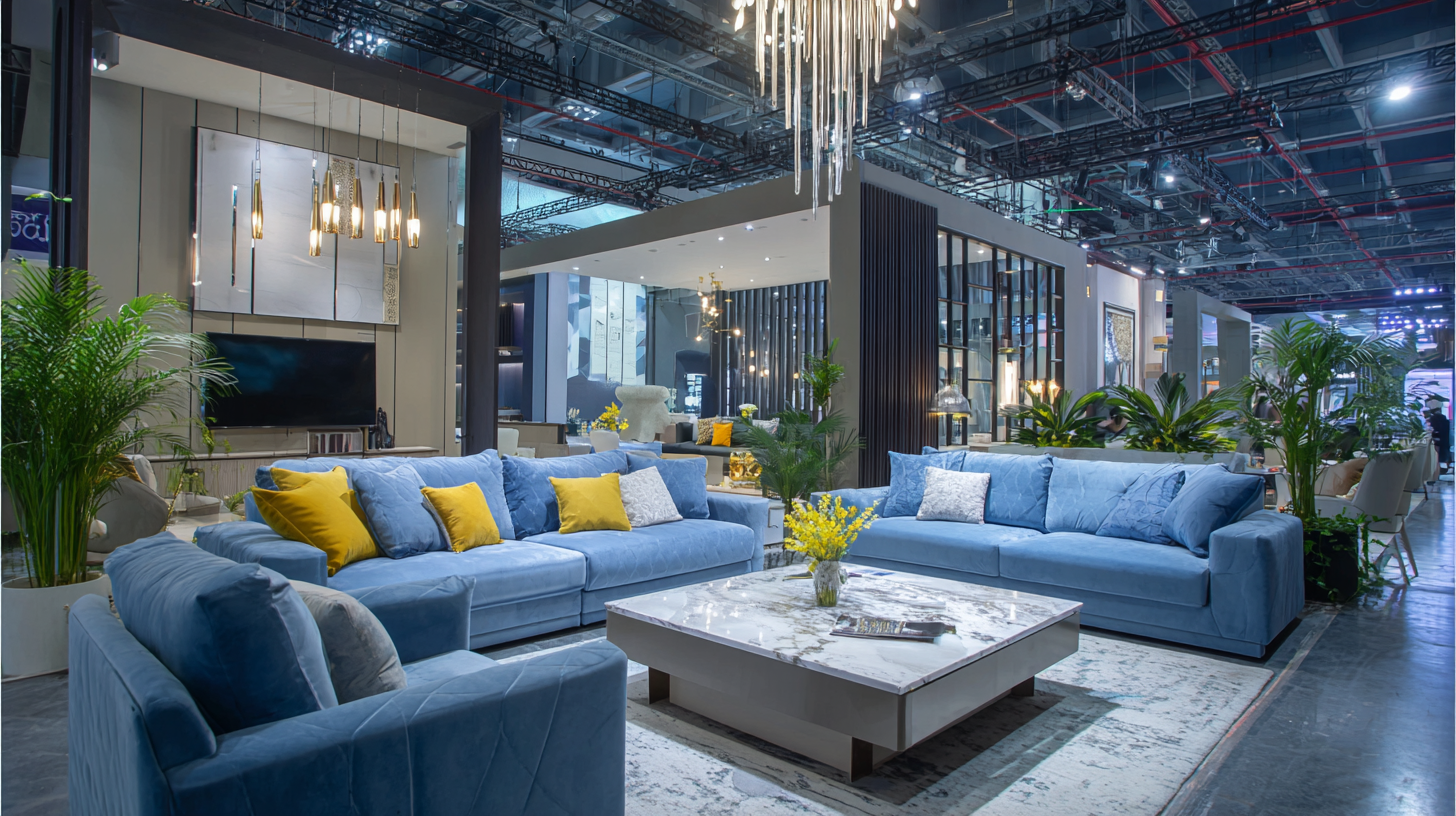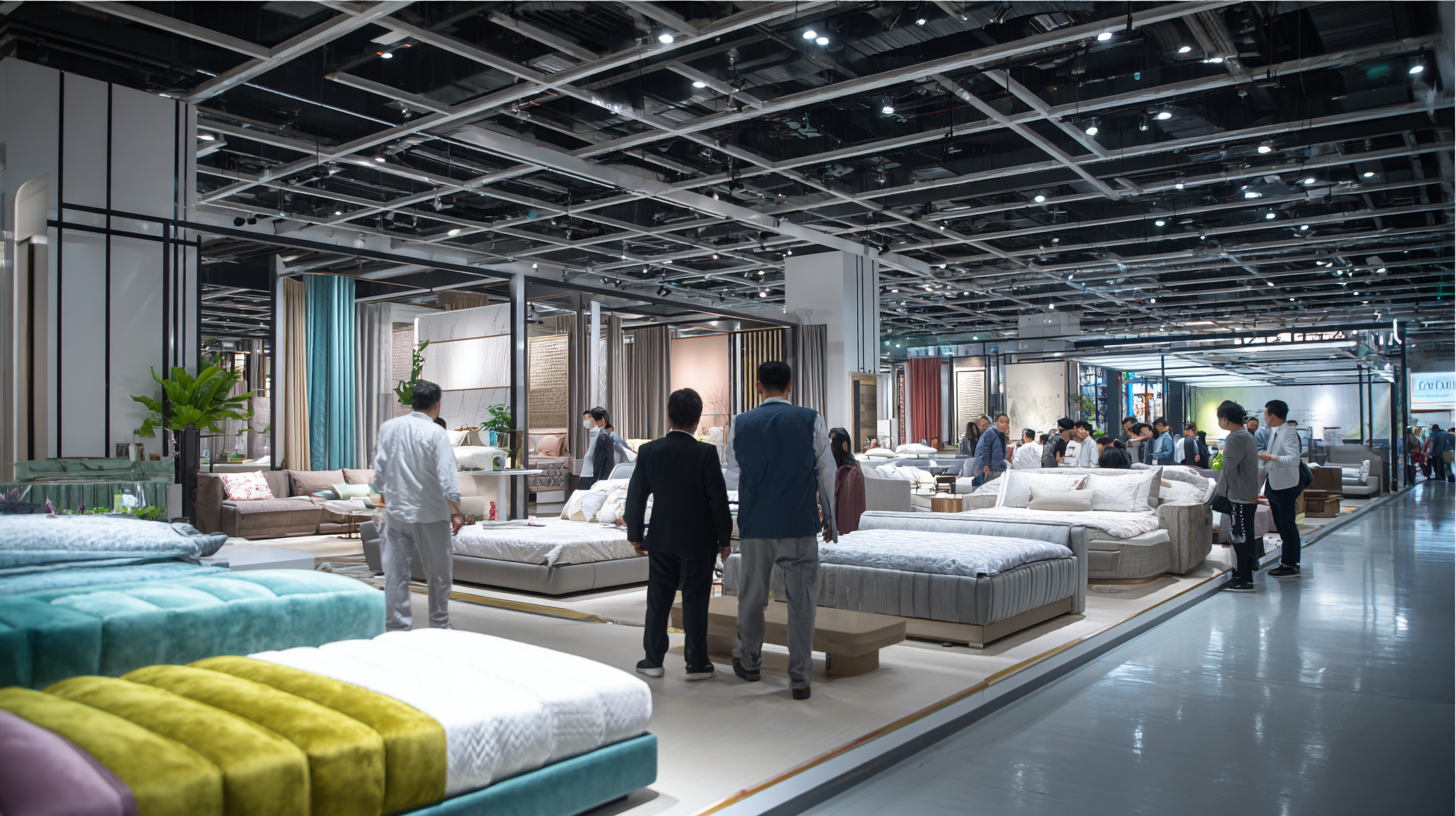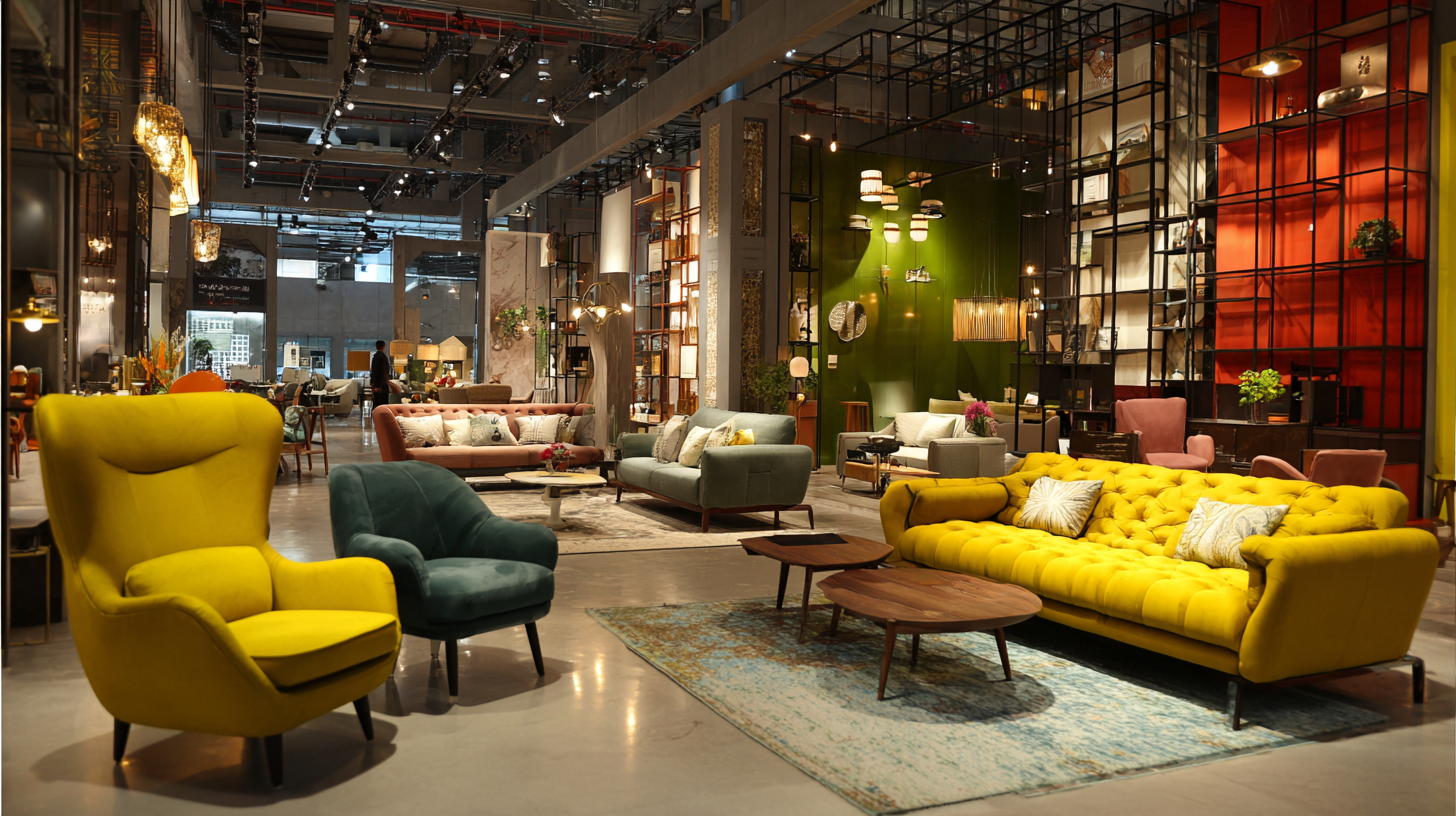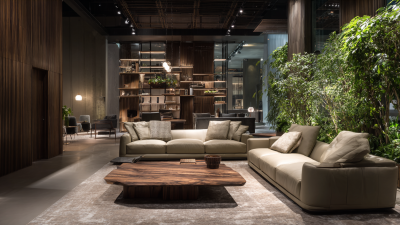Exploring Market Trends in Home Furnishings at the 138th Canton Fair 2025
As the global home furnishings market continues to evolve, the 138th Canton Fair in 2025 is poised to showcase the latest trends and innovations shaping the industry. According to a report by Grand View Research, the global home furnishings market is expected to reach USD 1.61 trillion by 2025, driven by increasing disposable incomes and a growing appreciation for home aesthetics. The fair serves as a vital platform for manufacturers and suppliers to present their products and network with international buyers, reflecting the rising demand for sustainable and multifunctional home furnishings. This year, the event will particularly highlight eco-friendly materials and smart home technologies, aligning with consumer preferences for sustainability and convenience. Participants will have the opportunity to explore emerging trends and gain insights into market dynamics, crucial for businesses aiming to thrive in the competitive home furnishings landscape.

Current Trends in Home Furnishings Showcased at the 138th Canton Fair
The 138th Canton Fair in 2025 showcased a variety of innovative trends in home furnishings, reflecting the dynamic nature of consumer preferences. One prominent trend is the increasing demand for sustainable materials. Many exhibitors highlighted products made from recycled and eco-friendly materials, appealing to environmentally conscious consumers. This shift towards sustainability not only addresses ecological concerns but also offers a unique selling point for brands aiming to differentiate themselves in a competitive market.
Another noteworthy trend observed was the rise of multifunctional furniture. With urban living spaces becoming increasingly compact, consumers are seeking versatile pieces that maximize both style and utility. Products like sofa beds, extendable dining tables, and modular shelving units were prevalent, showcasing clever designs that cater to modern lifestyle needs. This trend emphasizes the importance of adaptability in home furnishings, as designers strive to create solutions that blend functionality with aesthetics. The 138th Canton Fair effectively highlighted these evolving trends, setting the stage for future developments in the home furnishings industry.
Exploring Market Trends in Home Furnishings at the 138th Canton Fair 2025
| Category | Latest Trends | Popular Materials | Price Range |
|---|---|---|---|
| Sofas | Sustainable designs, Modular configurations | Recycled fabrics, Leather alternatives | $300 - $1500 |
| Dining Tables | Industrial styles, Multi-functional | Wood, Metal composites | $200 - $1200 |
| Bed Frames | Minimalist designs, Storage solutions | Solid wood, Upholstered panels | $250 - $1800 |
| Home Decor | Natural elements, Vintage styles | Ceramics, Bamboo | $20 - $500 |
| Lighting | Smart lighting, Decorative fixtures | Glass, Metal | $30 - $1000 |
Innovative Product Designs and Their Impact on Market Preferences
At the 138th Canton Fair in 2025, the home furnishings sector is set to showcase innovative product designs that significantly influence market preferences. The global market for functional sofas is projected to reach $5.7838 billion by 2025, with an impressive compound annual growth rate (CAGR) of 7.1% anticipated through 2033. This growth reflects a shift towards multifunctional living spaces, as consumers increasingly seek furniture that blends style and practicality.
Furthermore, the kitchen and bathroom sink market is expected to experience substantial growth, with an estimated value of $9.8042 billion in 2025 and a CAGR of 5.2% leading up to 2033. As lifestyles evolve, there is a growing preference for designs that emphasize aesthetics and functionality, allowing homeowners to enhance both the utility and beauty of their spaces.
The integration of innovative features and sustainable materials in new product lines at the Canton Fair will likely set the tone for future consumer trends in the home furnishings industry.
Sustainability and Eco-Friendly Practices in Home Furnishings
The 138th Canton Fair in 2025 presents a pivotal platform for the home furnishings industry, spotlighting sustainability and eco-friendly practices. As consumer preferences shift towards environmentally-conscious products, the market is responding with innovative solutions. According to the Global Sustainability Report 2024, the eco-friendly home furnishings market is projected to grow at a CAGR of 9.6%, highlighting a significant shift among consumers who prioritize sustainable materials and production methods.
Many manufacturers are now adopting responsible sourcing practices and utilizing sustainable materials such as bamboo, recycled metals, and organic textiles. A study from the Home Furnishings Institute indicates that 72% of consumers are likely to switch brands if they find out one of their favorite brands supports environmental sustainability. This growing demand is pushing companies to not only enhance their production processes but also to embody transparency in their practices, exemplifying their commitment to a greener future.
At the Canton Fair, attendees can expect to discover a range of products that align with these sustainability goals, from modular furniture made from upcycled materials to innovative designs that reduce waste. By integrating eco-friendly practices, the home furnishings sector is not just aligning with market trends but also leading the charge towards a more sustainable and ethical industry.

Consumer Behavior Insights from the 138th Canton Fair
The 138th Canton Fair in 2025 is set to unveil new trends in the home furnishings market, reflecting the evolving preferences of consumers. Recent studies indicate that sustainability is becoming a leading factor in purchasing decisions, with 73% of consumers prioritizing eco-friendly materials in their home products. This shift emphasizes the urgency for brands to adapt their offerings to meet the growing demand for sustainable furnishings. In this context, manufacturers showcasing their products at the Canton Fair will likely emphasize their commitment to environmental stewardship.
Moreover, insights from consumer behavior research reveal that personalization is key in the home furnishings sector. According to the Home Furnishings Association, 62% of consumers are more inclined to purchase items that can be customized to fit their needs and style. This trend reflects a broader desire for individuality in living spaces, and brands must harness this by offering versatile products that allow for customizable designs.
**Tip:** When attending trade events like the Canton Fair, keep an eye on the brands that actively engage in sustainable practices and offer customizable options, as these are likely to resonate with the modern consumer's values. Additionally, consider utilizing social media to gauge real-time consumer sentiments about new product launches showcased at the fair.
Home Furnishings Market Trends at the 138th Canton Fair 2025
This chart illustrates the consumer behavior insights based on the trending categories of home furnishings observed at the 138th Canton Fair. The data shows the percentage of consumer interest in various home furnishing categories.
Key Players and Competitive Analysis in the Home Furnishings Market
 The home furnishings market is experiencing significant growth driven by various factors,
including the increasing demand for stylish and functional decor. In 2025, the global home decor market
is projected to reach approximately $802.26 billion, with
forecasts indicating a rise to $1.097 trillion by 2032.
This robust growth presents lucrative opportunities for key players in the industry to innovate
and expand their product offerings.
The home furnishings market is experiencing significant growth driven by various factors,
including the increasing demand for stylish and functional decor. In 2025, the global home decor market
is projected to reach approximately $802.26 billion, with
forecasts indicating a rise to $1.097 trillion by 2032.
This robust growth presents lucrative opportunities for key players in the industry to innovate
and expand their product offerings.
In addition to traditional sales channels, there is a marked shift towards online shopping, with
the online home decor market expected to grow at a CAGR of 11.2%.
Companies that strategically enhance their e-commerce platforms can tap into this expanding
consumer base effectively. The furniture rental service market is also noteworthy, projected to
rise from $90.47 billion in 2025 to $176.21 billion
by 2032, reflecting a growing preference for flexibility among consumers.
Tips: Stay updated on the latest trends
and consumer preferences to optimize product lines and marketing strategies. Leveraging data analytics
can help businesses better understand market dynamics and customer behavior. Additionally, focusing on
sustainability can resonate well with environmentally conscious
consumers, further enhancing brand loyalty.
Related Posts
-

Exploring Innovative Alternatives for Best Home Furnishings in Global Markets
-

Identifying Problems with Best House Decor Choices to Elevate Your Home Style
-

Elevating Home Aesthetics Globally with the Finest Quality Decor from China
-

What Defines High Quality Furniture: Key Characteristics to Consider
-

Challenges in Choosing Best Quality Furniture for Your Home
-

The Future of Sustainable Designs in Best Outdoor Tables

 Catalog
Catalog Replacement Cushions
Replacement Cushions New Jersey Catalog
New Jersey Catalog